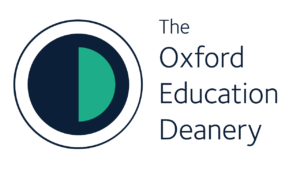In response to a growing body of international evidence that high-quality Early Childhood Education and Care (ECEC) services deliver a range of long-term benefits to children and society, the New South Wales Department of Education (NSW DoE) wanted to understand whether spending government money on ‘evidence-based professional development’ in this area was a worthwhile investment. The NSW DoE thus funded the Fostering Effective Early Learning (FEEL) study to learn whether a bespoke ECEC professional development course made any difference to the quality of curricula and interactions in ECEC services (i.e. pre-schools & long-day care) in Australia. The FEEL team designed an innovative Leadership for Learning professional development programme for early childhood staff at 90 preschool and long-day care centres across New South Wales. The programme covered the foundational principles of child learning and development (including self-regulation, literacy, numeracy, science and critical thinking).
Deanery Digests are short, plain language summaries of the Department of Education’s research outputs. This Deanery Digest is based on the following published research article: Siraj, I., Melhuish, E., Howard, S.J., Neilsen-Hewett, C., Kingston, D., De Rosnay, M., Huang, R., Gardiner, J. & Luu, B. (2023) Improving quality of teaching and child development: A randomised controlled trial of the leadership for learning intervention in preschools. Frontiers in Psychology, Sec. Educational Psychology, 13, 1-18. https://doi.org/10.3389/fpsyg.2022.1092284.
What is this research about and why is it important?
What did we do?
We designed the Leadership for Learning programme on the basis of a rigorous analysis of practices identified via a comprehensive survey of hundreds of ECEC centres in the UK and Australia. This process identified a number of weaknesses that we felt could be addressed through an appropriate programme of professional development. The resulting programme drew on internationally recognised high-quality evidence on improving the quality of interactions with children, on fostering children’s social wellbeing, and on supporting concept development in curriculum subjects. The training was delivered over nine months in three phases: (i) Two intensive face-to-face days on the aspects and evidence supporting quality in ECEC (ii) five fortnightly half-day sessions focusing on foundational principles of child learning and development, and (iii) ongoing online support which provided PowerPoint presentations, video clips, notes and resources – and facilitated discussions outside face-to-face interactions.
Ninety ECEC centres across New South Wales took part in the study, attended by a total of 1,346 three-to-five-year-olds. Before beginning the programme, we carried out initial ratings of centre quality and child development (i.e. language, numeracy and self-regulation) in all the centres. Half the centres were then randomly allocated to receive the programme, while the other half continued with their usual practice. The ratings of centre quality and child development were repeated and compared at the end of the programme.
During every phase of the programme, the participants evaluated the training and the trainers. They examined their experiences and perceptions of the programme, suggested improvements, explained how the programme was influencing them (or not) as professionals, and whether (or not) they perceived any improvements to quality for the staff, children and families with whom they worked.
What did we find?
We evaluated the content and delivery of the Leadership for Learning programme by assessing its impact on the participating ECEC staff and on child outcomes. Overall, we found that the programme significantly enhanced the quality of the ECEC centres. Compared to the ECEC centres who carried on with their usual practice, the centres that received the programme showed the following improvements:
Pedagogical leadership: There were significant improvements in the quality of pedagogy (e.g. early language development, pre-literacy, mathematics, science, diversity) and in interactions (e.g. sustained shared thinking, supporting social-emotional well-being).
Child learning outcomes: Children in the programme had twice the growth in verbal comprehension compared to the usual practice group. Their numeracy development improved significantly (more than would be expected in normal development) on measures of number concepts and early numeracy. And they demonstrated improved socio-emotional development, with fewer emotional and peer problems.
Adult participants: Staff who participated in the programme reported increased confidence and motivation, increased intention and sense of purpose in teaching practice, deeper understanding of child development and of evidence underpinning effective practice, deeper understanding of their role in influencing outcomes, and improved capacity to share information with families, colleagues, and the broader community. They also reported changes among their children – both in what the children experienced through their own modified staff practice, and also in how the children responded to these new experiences.
What does it all mean anyway?
This study confirms what many had already instinctively thought– that sustained, evidence-based staff training really does make a lasting, positive difference to ECEC practices. It demonstrates to providers and owners that investing properly in their staff’s professional development is a sure path to a higher quality service. Most importantly, it urges providers of training to shape their offerings on the strong evidence of internationally researched best pedagogical and professional development practice.

